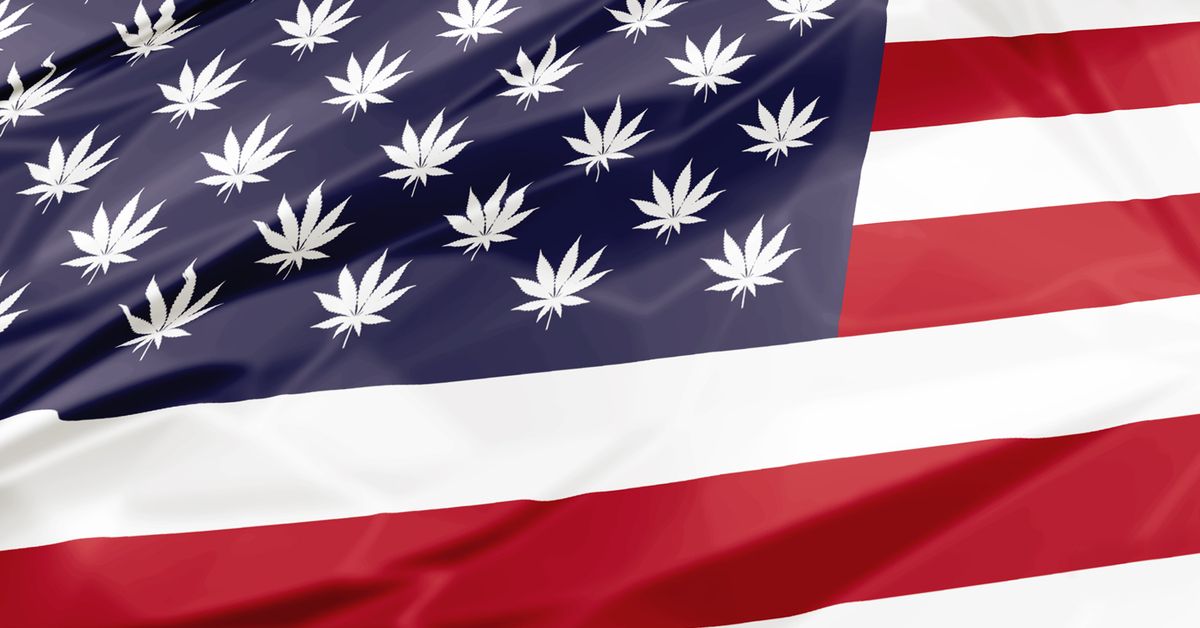On 27 May 2018, the web site Your News Wire published an item appearing to report that President Trump planned to sign a law legalizing medical marijuana in all 50 states:
President Trump is set to sign legislation which will make medical marijuana federally legal for terminally ill patients. The bill, known as the “Right to Try Act,” will prohibit the FDA from banning natural cures, and allow patients to try medications that have not been approved by the FDA, but are currently under clinical trial.
The claim had a single source: the cannabis industry site Herb.co. However, that site's 24 May 2018 article was markedly more reserved in its speculative premise:
Trump To Sign Bill Which Could Make Cannabis Federally Legal For The Terminally Ill
President Trump is set to sign legislation which could make medical marijuana federally legal for terminally ill patients. The bill, known as the “Right to Try Act,” would allow patients with potentially fatal conditions to try medications that have not yet been approved by the FDA, but are undergoing the approval process and have already passed the first phase of clinical studies.
[...]
What’s not clear is what illnesses qualify as life-threatening. Post-traumatic stress disorder, for example, could be argued to be life-threatening given the high rates of suicide among those who are diagnosed, but it’s up for debate. It’s likely that those details will be hammered out on a state by state basis in jurisdictions that have already passed their own version of Right to Try. The full title of the bill suggests as much stating, “in accordance with State law…”
... Under the broad wording of the federal bill, no specific illnesses are mentioned. Instead, an ‘eligible patient’ is defined as, “Diseases or conditions where the likelihood of death is high unless the course of the disease is interrupted; and Diseases or conditions with potentially fatal outcomes, where the endpoint of clinical trial analysis is survival.”
While Your News Wire claimed that President Trump was to sign legislation "which will make medical marijuana federally legal for terminally ill patients," Herb.co originally reported that the Right to Try act could have that effect. The actual bill, of course, made no mention of marijuana specifically. Introduced in February 2017, it read:
SEC. 2. USE OF UNAPPROVED MEDICAL PRODUCTS BY PATIENTS DIAGNOSED WITH A
TERMINAL ILLNESS.(a) In General.--Notwithstanding the Federal Food, Drug, and Cosmetic Act (21 U.S.C. 301 et seq.), the Controlled Substances Act (21 U.S.C. 801 et seq.), and any other provision of Federal law, the Federal Government shall not take any action to prohibit or restrict--
(1) the production, manufacture, distribution, prescribing, or dispensing of an experimental drug, biological product, or device that--
(A) is intended to treat a patient who has been diagnosed with a terminal illness; and
(B) is authorized by, and in accordance with, State law; and
(2) the possession or use of an experimental drug, biological product, or device--
(A) that is described in subparagraphs (A) and (B) of paragraph (1); and
(B) for which the patient has received a certification from a physician, who is in good standing with the physician's certifying organization or
board, that the patient has exhausted, or otherwise does not meet qualifying criteria to receive, any other available treatment options.
As noted by Herb.co, broad language was used in the law's text regarding conditions qualifying as a "terminal illness," substances or devices in its purview, and even the relationship between state and federal law. Critics of the law maintained that it allowed drug companies too wide a berth to market experimental treatments while weakening the Food and Drug Administration's regulatory ability. Proponents argued that legislation of its type enabled terminally ill patients with little left to lose a chance to outlive drug trial phases.
We contacted NORML — the National Organization for the Reform of Marijuana Laws — for further clarification and interpretation on what effect, if any, the Right to Try Act of 2017 would have on the use of medical marijuana "in all 50 states," but have not yet received a response. However, the claim as presented is false; the act itself was unrelated to medical marijuana, and solely pertained to those diagnosed with terminal illnesses. Even under the most flexible interpretations, there was no truth to the statement that President Donald Trump was signing a law legalizing medical marijuana at a federal level.

